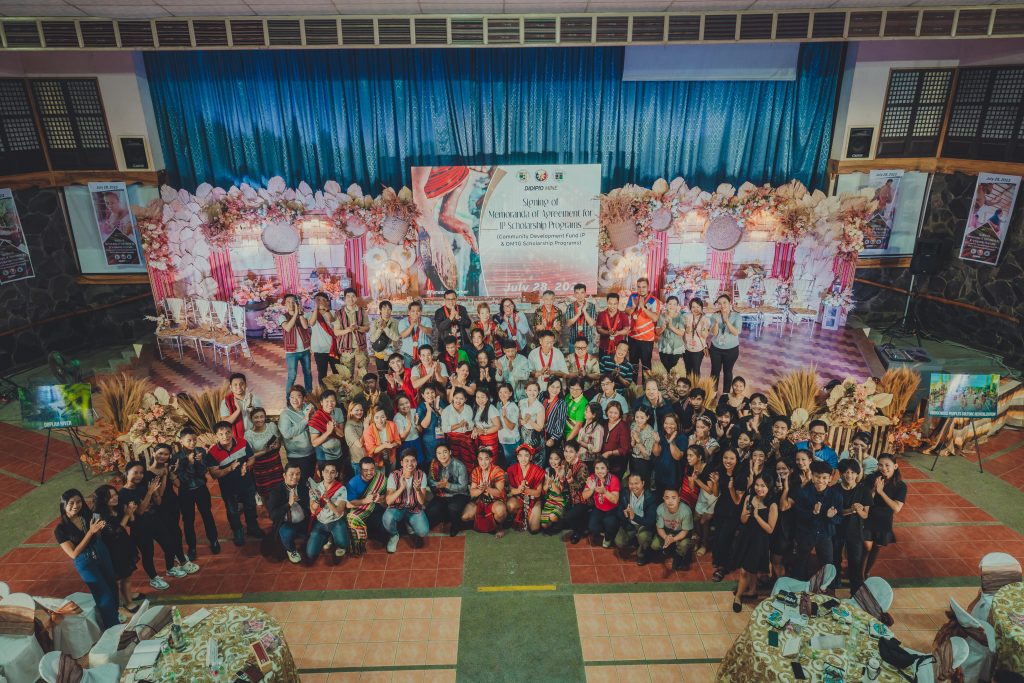For well developed countries, education is a given right, as basic as breathing. But in developing countries like the Philippines, most households have to contend with meeting basic needs such as food, energy costs, and housing, making education less of a priority.
The education sector is fraught with various problems ranging from poverty and lack of resources to infrastructure and the digital divide.[1] It is no surprise then that only 13 percent of Filipinos have obtained a college degree based on the latest Census of Population and Housing.[2]
Across the different levels of educational attainment, reasons vary for not attending school. Most of us have watched Filipino teleseryes where the lead character must stop going to school and go to work to help the family. Sadly, these dramas reflect reality. The Philippine Statistics Authority relates that the primary reasons for non-attendance to schools are employment (19.7 percent), lack of personal interest (12.6 percent), marriage (10.7 percent), and financial constraints or high education costs (9.9 percent).[3]
In Cagayan Valley, out of 330,000 individuals ages 20 to 24 years old, only 28 percent of Cagayanos have graduated from college.[2]
“With rising costs of living, even if there are state universities, it is still difficult to continue studying because we need to pay rent and to buy books and other materials,” Althea Mae Valdez, a student from Nueva Vizcaya State University, said.
Recognizing the challenges that the youth in Cagayan Valley face, the Didipio Mine of OceanaGold (Philippines), Inc. has been providing scholarship grants to deserving students in the provinces of Nueva Vizcaya and Qurino since 2007. The Didipio Mine has produced 270 scholar graduates to date.
Scholarship for Indigenous Peoples
With Region 2 home to several indigenous peoples (IPs) such as the Agtas, Ibalois, Bugkalots, Dumagat, among other tribes, the Didipio Mine, the National Commission on Indigenous Peoples (NCIP), and the Indigenous Peoples Mandatory Representatives (IPMR) of the provinces of Quirino and Nueva Vizcaya forged a memorandum of agreement last year, offering scholarships to students belonging to the indigenous cultural communities (ICCs) and IP groups.
Funded through the Community Development Fund (CDF), 75 IP students have been receiving P40,000 in yearly stipend to support them in completing their tertiary education. The CDF is an addendum to the Financial or Technical Assistance Agreement (FTAA) of the Didipio Mine.

The Memorandum of Agreement for the CDF IP Scholarship Program on July 28, 2023, was supported and witnessed by NCIP Ethnographic Commissioner Simplicia Hagada; Mines and Geosciences Bureau Region 2 Regional Director and chair of the CDF Steering Committee Engr. Mario A. Ancheta; NCIP Region 2 Regional Director, Atty. Ronaldo Daquioag; NCIP Quirino Provincial Officer Ronnie Caanawan; NCIP Nueva Vizcaya Provincial Officer Atty. Harvey Pugong; and former Didipio Barangay Captain Ereneo Bobolla.
“It was a ray of hope for me when I became a CDF IP scholar because I then knew I will be able to achieve my dream of becoming a teacher,” Valdez, who also belongs to the Ayangan tribe, said.
“Now I can pay off my bills in school and buy the things I need. I hope that the scholarship will continue until I graduate,” she added.
The stipend from the CDF IP Scholarship served as Education major Christy Chulipa’s allowance, while also allowing her to pay her school fees at NVSU Bayombong.
“I am thankful to the Didipio Mine as I do not ask for an allowance from my parents anymore,” Chulipa, a member of the Ayangan and Tuwali tribes, said.
Recently, at the request of the Philippine Councilors Leagues of Nueva Vizcaya and Quirino, and in collaboration with the Mines and Geosciences Bureau, NCIP, the Commission on Human Rights, State Universities and Colleges, and other concerned government agencies, the Didipio Mine has opened additional 75 slots in educational assistance also funded by the CDF for students residing outside its 11 host and neighboring communities. They will also be receiving P40,000 annually.
The Didipio Mine currently provides educational assistance and scholarships to 509 tertiary students and with 75 more this 2024 through the CDF scholarship.
Developing future industry professionals
For Mark Angelo Bumughawi, a 4th year Mining Engineering student, the Mine’s Development of Mining Technology and Geosciences (DMTG) scholarship was ‘gold’ to his family.
His family faced a financial crisis when he pursued college alongside his sister, and to support his studies, he paused his studies and worked in small-scale mines.
“Things shifted when the Didipio Mine welcomed me as a DMTG scholar, providing invaluable support akin to ‘gold’ for my family and me. Transitioning from financial worries to academic focus, I seized the different opportunities bestowed by the scholarship,” Bumughawi said.
“As a DMTG scholar, I’ve experienced the beauty of the Didipio Mine firsthand through its immersive OJT experiences. I am deeply grateful to the Didipio Mine for the invaluable opportunity through their scholarship program,” he added.
Investing in the future
For its 11 host and neighboring communities, the Didipio Mine has scholarship programs under its Social Development and Management Program and Corporate Social Responsibility initiatives which includes the Neighboring Community Scholarship Program.
“I managed to finish my degree through OGPI’s neighboring scholarship program, and eventually obtained my Certified Public Accountant license. It is truly a life-changing gift,” Recel Benhel, a graduate of Saint Mary’s University-Bayombong, said.
“They have invested in my future, in the future of the youth and they are fostering the growth of scholars from the neighboring barangays,” said Johara Binlayan of Brgy. Dibibi, Cabarroguis, also a scholar of OceanaGold and now a civil engineer.
“A better future for the youth – that is among our commitments to the communities we serve. We believe that by providing better opportunities accessible to the underprivileged but deserving students, we can inspire and make them realize their potential and contribute to nation-building – from the mine to the mind,” Atty. Joan Adaci-Cattiling, OGPI President and General Manager for External Affairs and Social Performance, said.
[1] https://pids.gov.ph/details/news/in-the-news/educational-challenges-in-the-philippines
[2] https://psa.gov.ph/content/literacy-rate-and-educational-attainment-among-persons-five-years-old-and-over-philippines
[3] https://www.psa.gov.ph/statistics/income-expenditure/apis


